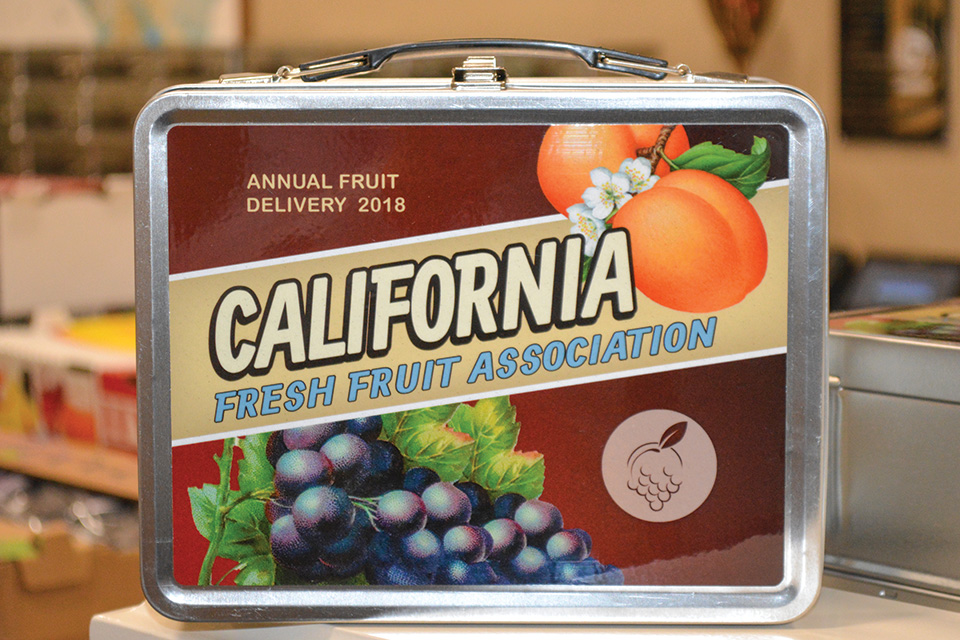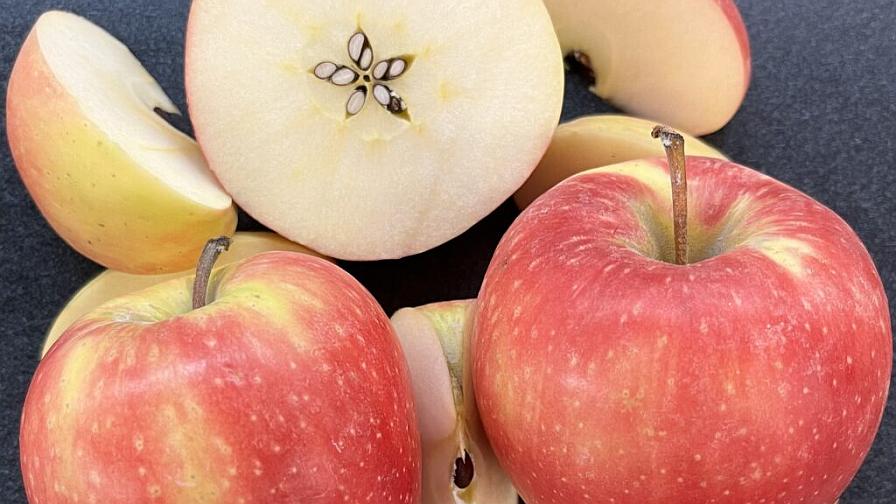What are the Top 10 Issues for California Fruit Growers?

Ian LeMay
California’s fresh fruit production is centered in the San Joaquin Valley, one of the most agriculturally rich and diverse valleys in the world, so it’s only fitting the new chief of the California Fresh Fruit Association (CFFA) is a lifelong valley resident and passionate advocate.
Ian LeMay, who previously was CFFA Director of Member Relations and Communications, recently took over as President from George Radanovich, who had served in the post for three years after taking over from longtime leader Barry Bedwell.
CFFA is a voluntary public policy organization that works on behalf of its members — growers, shippers, marketers, and associates — on issues that specifically affect member commodities: table grapes, kiwis, pomegranates, persimmons, cherries, blueberries, peaches, pears, apricots, nectarines, plums, apples, and interspecific stone fruits such as pluots. It is the association’s responsibility to serve as a liaison to regulatory and legislative authorities, acting as a unified voice for members.
LeMay says his enthusiasm for the valley and its bountiful fruits stems from his parents, who instilled a sense of responsibility and stewardship for the community he has always carried with him. After graduating from high school in Fresno — where most of the nation’s peaches, plums, and nectarines are grown — LeMay went on to earn a bachelor’s degree in agriculture business from California Polytechnic State University, San Luis Obispo.
A self-confessed “political enthusiast,” before joining CFFA LeMay was a key adviser to longtime Congressman Jim Costa on a number of key agricultural issues, including water and transportation. Prior to that, he worked as a California Market Specialist for the Lindsay Corporation, an agricultural equipment manufacturer. He and his wife Molly live in Fresno with their three children.
American Fruit Grower® and Western Fruit Grower® recently caught up with LeMay to go over what has become known as CFFA’s calling card in the state Legislature (see “Food for Thought”), its annual top 10 issues of chief concern to members.
- Immigration: Because they grow fresh fruit that can be easily damaged, making mechanization difficult, CFFA members will continue to be dependent on a viable labor force. They will continue to work with federal and state representatives on a policy to allow for guestworker program.
“The reality is our members are highly dependent on migrant labor, and existing labor laws are limiting our ability to meet our needs to harvest and pack out commodities. The answer is a comprehensive bill with a program for those individuals who are here illegally to get legal status to work in our industry. The dynamics in Washington don’t lend themselves to solution,” he says, “causing a heavy strain on ag.”
- Increasing Wage Costs: California is increasing the state minimum wage to $15 an hour, a level that many CFFA members have already reached. But it’s not just the minimum wage. While in the past, workers didn’t have to pay overtime until 10 hours a day were reached, that is going to be reduced to eight hours per day.
“This severely impacts my members, who are going to be at a disadvantage in the marketplace,” LeMay says. “There are going to be very different playing fields to get fruit to market.”
- Water Supply/Availability: The western U.S. continues to be plagued by federal water policy that doesn’t allow California growers to capture enough water when they do get decent rainfall. They want policies based on sound science, ones that will allow for the capture of as much water as appropriate. More storage is needed, such as the enlargement of the Shasta Dam for example.
“Federal officials have not been using updated science,” he says, “which would allow more water through the system.”
- Immigration Enforcement: CFFA members understand that Immigration and Customs Enforcement (ICE) has a job to do.
“But we would prefer ICE concentrate on people who are committing crimes,” says LeMay, “not individuals going to work and providing for their families.”
- Groundwater: CFFA is working with many associations on a blueprint to mitigate the state’s Sustainable Ground Management Act, which could potentially mean upward of 1 million acres of farmland would go out of production.
“Sustaining groundwater is key, but we simply need to move more water throughout the system,” he says. “The state is not investing to meet population growth, and the blueprint calls for better science and investment.”
- Labor Regulation: Every year, the California Legislature considers measures that advance opportunities for organized labor to unionize the agricultural labor force. But missing from that consideration is the thorough examination of the will of the labor force and the value they perceive in paying a percentage in dues for added wages, benefits, and working conditions, which either have been addressed or continue to be advanced by the Legislature or through regulation, thus deflating the value of union membership.
“Labor is a big problem in California,” says LeMay, “and we have been working with state officials to promote sound policy.”
- Water Quality: Three of the top 10 concerns voiced by members center on water, showing how critical the issue is in the Golden State.
“We support an agreement to appropriate $130 million on an annual basis to support clean drinking water,” he says. “We understand we have to be good stewards of the land and water, and this is a statement to that effect.”
- Food Safety: Growers and packers are looking to ensure their implementation of food safety practices exceed government standards such as the Food Safety Modernization Act for safe production and the ever-increasing retailer demands.
“This became a paramount issue four years ago when we had a stone fruit listeria scare,” LeMay says. “We’re now identifying new and advanced protocols to ensure we deliver safe fruit to consumers.”
- Health Care Costs: While employee wellness continues to be a priority, as more regulations are put on members, costs skyrocket.
“We’re concerned about added bureaucratic layers which benefit no one,” he says, “such as arbitrary numbers of sick days thrown at the industry.”
- Plant Health Materials: With such high-profile materials such as glyphosate and chlorpyrifos coming under fire, growers are concerned about getting further squeezed.
“As fewer and fewer materials are allowed to be used,” says LeMay, “it simply becomes more difficult to manage crops in the way we’ve been managing them.”

A lunchbox like this one is dropped off at California state legislators’ offices, filled with fresh California-grown fruit. Along with the fruit, the folks at California Fresh Fruit Association would leave behind the organization’s annual report, as well as the list of top 10 issues. “Some of them proudly display lunchboxes from multiple years in their offices,” says LeMay. (Photo: California Fresh Fruit Association)
Food for Thought
To make the California Fresh Fruit Association’s policy issues more palatable to the Golden State’s legislators, for decades association representatives have been dropping off fresh fruit at the legislators’ offices in the state Capitol. Along with the fruit, they would leave behind the organization’s annual report, as well as the list of top 10 issues.
CFFA President Ian LeMay says that years ago they used to just drop off a wooden box filled with fresh fruit. But in the past decade, they have dropped off lunch pails, which have proved very popular with the politicians and regulators alike.
“Some of them proudly display lunchboxes from multiple years in their offices,” says LeMay.
It’s a great way to make an impression, and not just with the fruit. LeMay says several members of the Legislature have told him that providing a concise top 10 list of issues along with the lunchboxes is really helpful in recalling CFFA’s priorities.









